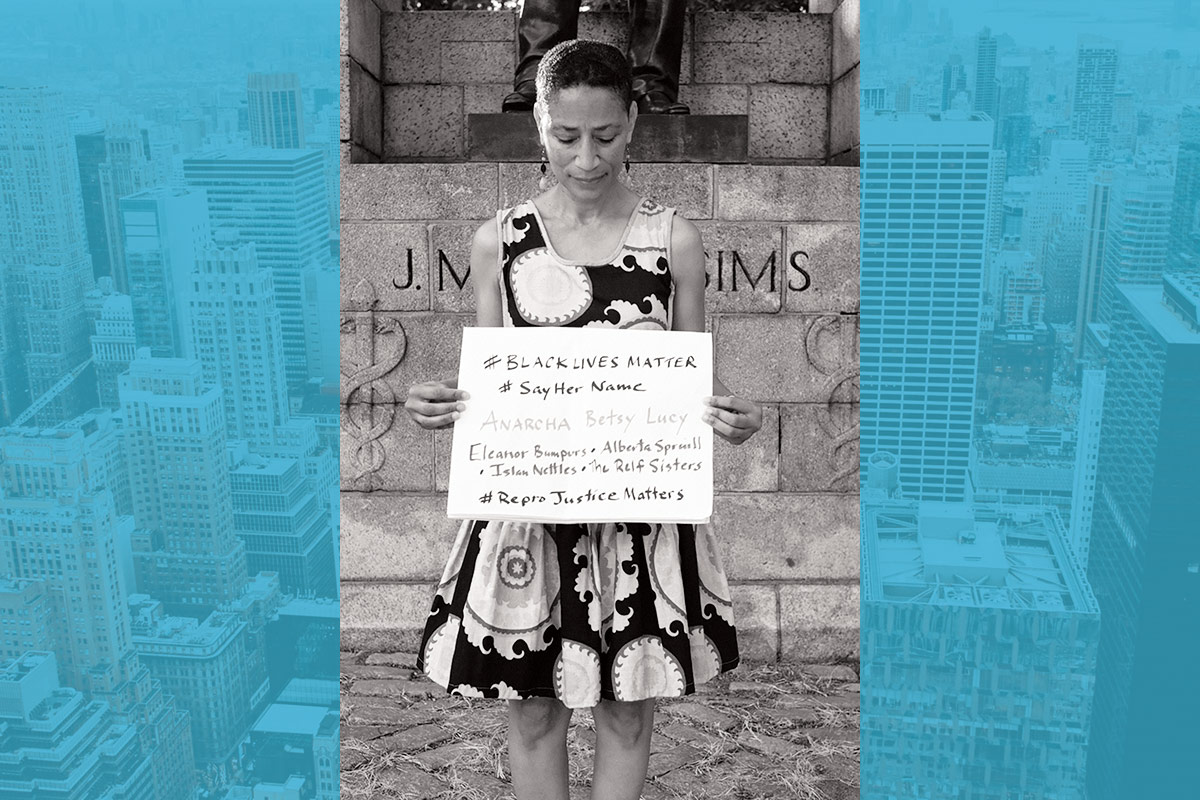
Over the course of her career, Dr. Lynn Roberts has been instrumental in shaping and enhancing New York City’s sexual and reproductive health initiatives. As Assistant Professor of Community Health and Social Sciences at SPH, her impact as an educator has transcended the classroom, helping to foster a meaningful public dialog around sexual and reproductive justice.
Reproductive Justice asserts the human right of every person to choose whether to have children and the conditions under which to give birth, to care for children with the necessary social supports in a safe and healthy environment, and to control their own body and self-expression, free from any form of sexual or reproductive oppression.
“Reproductive Justice employs several strategies,” Roberts says. “We believe in addressing these intersecting oppressions, analyzing and working to change the unjust systems of power in our society, always centering the most marginalized amongst us, and supporting the Indigenous and women of color leadership that exists. For that we have to build a socio-political economic power base, we have to mobilize across issues, we have to coalition-build with allied social justice organizations to fight for all of our human rights, and we have to take care of ourselves and support each other.”
Roberts’ influence as an educator has helped apply the Reproductive Justice framework to New York City public health policy. In 2016, at the suggestion of two former students who were interning at the city Department of Health, Roberts was taken on as an advisor to help retarget and refine a sexual and reproductive health campaign. Roberts worked with health department staff to cultivate a partnership known as the Sexual and Reproductive Justice Community Engagement Group (CEG) to achieve an ongoing dialog with community leaders, activists, and nonprofit organizations around the sexual and reproductive health inequities facing the city. The CEG meets monthly to plan and implement activities so that all New Yorkers can safely express their sexuality and gender identity with dignity, exercise bodily autonomy, and have the resources to lead healthy and fulfilling lives.
Roberts’ work culminated in November 2017 with the publication of Radical Reproductive Justice: Foundation, Theory, Practice, Critique, an anthology presenting the Reproductive Justice framework in a teachable format. Radical Reproductive Justice, published by the Feminist Press at CUNY, is the product of 10 years of collaboration between four editors, including Roberts, and combines historical text, policy analysis, personal narrative and poetry.
Roberts says the book’s publication couldn’t be more timely given the current political climate, the ongoing national dialog regarding sexual harassment and assault and the widespread media coverage of disproportionate maternal mortality rates among Black women and other women of color in New York City and across the nation. The Reproductive Justice framework the anthology presents is needed now more than ever, she says.
“The new Administration and the conservative-led Congress reversed reproductive rights measures that had been in place for the past 40 years,” Roberts says. “Within the first weeks of 2017, the President reinstated and extended the Global Gag Rule, several states introduced laws which impose restrictions on providers that perform abortions, and as we closed out the year new federal rules were introduced that make it possible for employers to deny access to contraception. Sexual and reproductive health is related to so many other intersecting issues; living in a safe community, having access to quality health care, housing and employment, freedom from discrimination and fear of deportation, and the inequitable burdens of the 2018 Tax Bill and FY 2019 Budget…all of these things that can determine our reproductive and sexual well-being have been under attack.”













